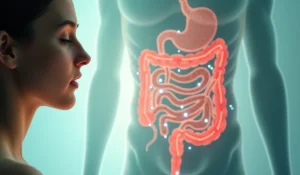Zinc and magnesium’s role in male mood and motivation is nowhere near what most of us think. Research estimates that over two billion people lack essential vitamins and minerals, which can drastically affect their mental health. My research shows this nutritional gap might quietly influence men’s psychological wellbeing.
Depression touches the lives of more than 300 million people worldwide. The lesser-known fact is how mineral deficiencies could play a part in this. A zinc deficiency alone can cause testosterone levels to plummet by 75% in six months, which often leads to mood disorders and low motivation. On top of that, magnesium proves vital to more than 300 biochemical processes that support brain function. Clinical studies show magnesium supplements reduce depressive symptoms effectively. Men who consumed 450 mg of magnesium daily saw their testosterone levels rise by 24% in just four weeks, and their mood improved too. The link between zinc and mood becomes evident as we understand how these minerals support our body and brain.
This piece will show you how these two powerful minerals affect your stress response and emotional balance. Understanding zinc’s role in your body and magnesium’s impact on your brain could complete your mental wellness puzzle.
The Link Between Micronutrients and Mental Health
Micronutrient deficiencies and mental health problems are two of the biggest global health challenges we face today. Scientists estimate that over two billion people lack essential vitamins and minerals, while depression affects more than 300 million people. This link isn’t random—what we eat and how we feel are connected more deeply than most people realize.
Why men should care about zinc and magnesium
Men’s unique physiological makeup makes zinc and magnesium significant to their mental wellness. These minerals do more than support simple body functions—they’re vital to male neurological health, hormone regulation, and emotional stability.
Zinc is a trace element that helps hundreds of biochemical processes linked to brain growth and function. It also plays a vital role in testosterone production, which directly shapes mood regulation and cognitive function in men. Scientists have discovered that zinc controls cytokine activity and influences neurogenesis by affecting brain-derived neurotrophic factor (BDNF) levels, a protein that helps neurons grow and survive.
Research on men has revealed fascinating results. Studies show strong links between zinc deficiency and depression in women, yet some research found no substantial connection between dietary zinc intake and depression risk in middle-aged men. Notwithstanding that, studies show zinc supplements can create remarkable antidepressant-like and mood-enhancing effects, especially when you have conventional treatments.
Magnesium, known as the “relaxation mineral,” is equally important for male mental health. This mineral regulates metabolism and controls calcium and potassium transport—processes your brain needs to work properly. Magnesium helps modify stress responses through the hypothalamic-pituitary-adrenal (HPA) axis. It reduces adrenocorticotropic hormone (ACTH) secretion and stops stress hormones from entering the brain.
Men dealing with stress should know that magnesium works as an antagonist of NMDA receptors, and low levels can lead to their functional overactivity. This mechanism affects anxiety levels, cognitive function, and emotional regulation—areas where men often don’t deal very well with problems quietly.
Mental wellness and nutritional gaps
Our modern diet has created what nutritionists call “type B malnutrition”—a strange situation where people are overweight yet undernourished. Many men consume too many calories but lack nutrients that support mental health. About 68% of Americans don’t get enough daily magnesium, which raises concerns given what we know about its effects on the brain.
This nutritional gap exists because:
- Modern farming focuses on crop yields instead of nutrient density, which has reduced mineral levels in crops over the last 70-150 years
- Herbicides like glyphosate act as mineral chelators that drain minerals from food and reduce nutrient absorption
- Processed foods dominate modern diets with high refined sugars and low nutrients, containing up to 77.4% less zinc than whole foods
These deficiencies show up in ways that affect mental wellness. Low magnesium can cause serious neurological and psychological problems. The most common symptoms include personality changes (32.7%), depression (22.4%), and stupor (20.4%). Low zinc disrupts brain zinc balance and can lead to problems with cognitive function, emotional regulation, and behavior.
Mental health issues can drain these nutrients even more. Depression reduces food intake, slows down digestion, and weakens micronutrient absorption. This creates a cycle that’s hard to break without help.
Your body needs micronutrients working together—not alone. This explains why fixing single deficiencies through individual supplements often doesn’t work well. A comprehensive approach that addresses multiple nutritional needs at once tends to work better for complex mental health issues.
Diet should be your first defense, but genetic differences mean some men need more nutrients than others. These individual variations help explain why some men stay mentally healthy with seemingly poor diets while others struggle despite making healthy choices.
Zinc and Mood: What the Research Shows
Research has shown clear links between zinc levels and mood disorders in the last three decades. Let’s take a closer look at these connections to understand why this essential mineral matters so much for your mental health.
Zinc deficiency and depression risk
Depression affects about 350 million people worldwide and stands as one of the main causes of disability across the globe. This widespread health challenge might have an unexpected nutritional link. About 50% of the world’s population is at risk of zinc deficiency. This creates a worrying overlap between these two major health issues.
Studies show that people with depression usually have lower zinc levels in their blood than healthy people. A detailed meta-analysis of 17 observational studies revealed blood zinc concentrations were about 0.12 µg/mL lower in depressed subjects compared to controls. The relationship works like a scale – as zinc levels drop, depression scores rise.
This connection shows up in a variety of populations. Studies of female teens, postmenopausal women, and dialysis patients have linked zinc deficiency to more severe depression. Research on adults aged 60-84 years found that 18.7% had zinc deficiency in their blood plasma. Those with depressive symptoms had substantially lower energy-adjusted zinc intake (median 11.1 vs 11.6 µmol/L) and lower plasma zinc levels (median 12.2 vs 12.3 mg/dL).
The research reveals some interesting gender differences. Maserejian’s 2012 cross-sectional study found links between zinc deficiency and depressive symptoms in women but not men. But other studies show zinc’s role in the body affects both men and women, especially in brain function.
Zinc levels and treatment-resistant depression
The link between zinc and treatment-resistant depression (TRD) is particularly interesting. Studies show that patients who don’t respond to standard antidepressants often have lower zinc levels in their blood than those who do.
Several controlled trials support using zinc to improve mood. One study showed that 25 mg of daily zinc supplements reduced depression scores in patients who hadn’t responded to antidepressants before. A 12-week study found that people taking 30 mg zinc gluconate showed better improvement in depression symptoms compared to those taking 2000 IU vitamin D.
A recent meta-analysis revealed zinc supplements lowered depression symptom scores by -4.15 points. These improvements happened mainly when zinc was used alone, which suggests it has its own antidepressant properties.
Zinc and mood swings in men
Men experience unique effects from the zinc-mood connection. Low zinc can reduce testosterone levels, which throws off hormonal balance and affects mood control. Zinc helps both neurotransmitter function and hormone regulation, so low levels can disrupt motivation, mental energy, and emotional balance.
Low testosterone links to fatigue, poor mood, and reduced sex drive. This means keeping healthy zinc levels becomes vital for men’s emotional stability.
Zinc affects mood through several biological pathways:
- It controls the hypothalamic-pituitary-adrenal (HPA) axis that manages stress responses
- It boosts serum brain-derived neurotrophic factor (BDNF), which is vital for neurogenesis
- It works as an NMDA receptor antagonist, similar to some antidepressants
- Low zinc changes how well antidepressant drugs work
A 2010 review in Clinical Nutrition And Metabolic Care suggested zinc could help treat mood disorders. This highlights its potential beyond just preventing deficiency.
The right zinc dose matters. Clinical trials typically use 25-30 mg daily with good results. Research shows this amount, combined with regular antidepressants, increases effectiveness and speeds up response time, especially in patients who didn’t respond to treatment before.
Magnesium’s Role in Brain and Emotional Health
Magnesium ranks as the fourth most abundant mineral in the human body. It plays a key role in over 300 enzymatic reactions that affect brain function and emotional regulation. This mineral’s impact on mental wellness goes way beyond the reach and influence of simple cellular function—it shapes how our brains process emotions, handle stress, and recover through sleep.
Magnesium and neurotransmitter balance
The role of magnesium in the brain mainly revolves around its control of neurotransmitters—chemical messengers that shape our thoughts and feelings. Magnesium works as a gatekeeper for NMDA receptors and helps manage glutamate, an excitatory neurotransmitter linked to learning and memory. Low magnesium levels can disrupt this control system and lead to glutamate excitotoxicity that damages neurons.
Magnesium affects how gamma-aminobutyric acid (GABA) works in the brain. GABA, the main inhibitory neurotransmitter, helps calm neural activity and promotes relaxation. The right magnesium levels support a healthy balance between brain excitation and inhibition—a balance that anxiety and depression often disturb.
Research backs up this connection strongly. A study with 8,894 adults revealed people with the lowest magnesium intake had a 22% higher risk of depression. Research also showed that magnesium supplements can work as well as antidepressant medication if you have mild to moderate depression.
Magnesium and the stress response
Magnesium acts as a natural buffer against stress by regulating the hypothalamic-pituitary-adrenal (HPA) axis—our body’s stress command center. A lack of magnesium makes the body’s stress response oversensitive, which triggers more cortisol and adrenaline release than needed.
This creates a troubling cycle: stress depletes magnesium, yet we need magnesium to handle stress. Chronic stress increases magnesium loss through urine, which can worsen deficiency.
Men face unique challenges with this relationship because chronic stress can lower testosterone production and affect mood and motivation. Research shows magnesium supplements can balance cortisol levels and boost stress resilience—benefits that matter especially to men who struggle with stress-related mood issues.
On top of that, magnesium helps control the autonomic nervous system. It supports the parasympathetic “rest and digest” functions that offset sympathetic “fight or flight” responses. This explains why many men feel more balanced when their magnesium levels are optimal.
Magnesium and sleep quality
The link between zinc and magnesium for mental health becomes clear when we examine sleep patterns. Magnesium improves sleep quality through several ways:
- It regulates melatonin production and release
- It calms the nervous system before sleep
- It maintains healthy sleep architecture
- It reduces night-time cortisol that can disrupt deep sleep
Research shows magnesium supplements improve both measured and perceived insomnia symptoms. One clinical trial found that 500 mg of daily magnesium led to better sleep efficiency, longer sleep time, and fewer early morning wake-ups.
The most compelling evidence shows magnesium supplements increase slow-wave sleep—our most restorative sleep phase that helps with memory and emotional processing. Better sleep quality directly leads to improved mood and sharper thinking during the day.
Poor sleep and mood disorders feed into each other. Depression and anxiety disrupt sleep, while bad sleep makes psychiatric symptoms worse. Magnesium supplements can help break this cycle by improving both sleep quality and mood regulation.
While many experts highlight the role of zinc in the body for male health, magnesium deserves just as much attention. Its effects on neurotransmitter balance, stress regulation, and sleep quality make it crucial for mental wellness and daily functioning in men.
How Zinc and Magnesium Work Together
Within the complex biochemistry of our brains, zinc and magnesium don’t just exist independently—they work together, improving each other’s effects through shared pathways and complementary mechanisms. Understanding this partnership provides significant insights into why maintaining optimal levels of both minerals is so important for mental wellness.
Shared pathways in the brain
Zinc and magnesium operate through several overlapping neurological mechanisms that fundamentally affect mood regulation. Zinc, the second most abundant bivalent cation in the central nervous system, influences over 300 zinc-dependent enzymes throughout the body. Magnesium serves as a cofactor in about 600 enzymatic reactions, making both minerals essential for brain function.
Both minerals interact with the glutamatergic system, though through different mechanisms. Magnesium regulates NMDA (N-methyl-D-aspartate) receptors by blocking calcium influx when neurons are at rest. Zinc acts as a neuromodulator in certain synapses, especially in the hippocampus, where its concentration can exceed 150 microM.
Both minerals modulate NMDA receptor activity through distinct binding sites, creating a complementary effect. This dual regulation helps maintain the balance between excitatory and inhibitory neurotransmission necessary for proper mood regulation and cognitive function.
Synergistic effects on inflammation and mood
Beyond their individual properties, zinc and magnesium show powerful synergistic effects in reducing inflammation and oxidative stress—two factors linked to depression and mood disorders.
Both minerals possess anti-inflammatory properties that complement each other. Zinc modulates cell immunity and down-regulates pro-inflammatory cytokines like IL-1β, IL-6, and TNF-α. Magnesium also reduces inflammation, but zinc’s anti-inflammatory effect is more potent. When combined, these minerals create a more detailed anti-inflammatory response than either can achieve alone.
Their joint influence on the hypothalamic-pituitary-adrenal (HPA) axis—our primary stress response system—deserves special attention. Zinc deficiency has been associated with elevated serum cortisol levels, while magnesium helps regulate the HPA axis by reducing ACTH secretion and modulating adrenocorticotropic sensitivity. Optimal levels of both minerals help prevent the chronic HPA axis hyperactivity often seen in depression.
Zinc and magnesium for mental health: combined benefits
The role of zinc and magnesium in male mood and motivation becomes evident when examining their combined effects on brain health:
- Enhanced neuroprotection: Both minerals reduce apoptosis (programmed cell death) in vital brain regions like the hippocampus—zinc by supporting cell cycle regulation and magnesium by blocking NMDA receptor overactivity.
- Improved neurogenesis: Zinc influences neuroplasticity through BDNF expression, while magnesium supports the creation of new neural connections.
- Optimized antidepressant response: Research shows that zinc and magnesium can potentiate the effects of conventional antidepressants, possibly through their complementary actions on NMDA receptors.
- Balanced neurotransmission: Together they help maintain appropriate levels of both excitatory and inhibitory neurotransmitters.
Clinical evidence supports this synergy. Studies show that magnesium enhances the absorption and utilization of zinc, allowing it to free its immune-boosting and mood-regulating potential more effectively. This observation helps explain why deficiency in either mineral can undermine the effectiveness of the other.
These minerals also work together in maintaining proper testosterone levels—a critical factor in male mood regulation. Zinc and mood swings in men may be partially attributed to zinc’s role in testosterone production, while magnesium aids hormone binding to target tissues.
The relationship between these minerals shows how micronutrients work in concert rather than isolation. This explains why addressing deficiencies in both typically produces better results for mood disorders compared to single-nutrient interventions.
Biological Mechanisms Behind the Mood Effects
At the molecular level, zinc and magnesium lift brain chemistry through distinct yet interconnected pathways that explain their profound effects on mood and mental wellness. Scientific evidence reveals remarkable biological mechanisms underlying how these minerals support emotional stability and cognitive function.
HPA axis and cortisol regulation
First of all, both zinc and magnesium help govern our body’s primary stress-response system—the hypothalamic-pituitary-adrenal (HPA) axis. Research shows that zinc deficiency substantially elevates serum cortisol concentration in animals by boosting HPA axis activity. This disruption isn’t merely theoretical; studies confirm that continuous increases in plasma corticosterone (the animal equivalent of human cortisol) occur after daily administration of zinc-deficient diets.
Magnesium works differently yet complementarily within this same system. It effectively reduces the secretion of adrenocorticotropic hormone (ACTH) and modulates adrenocorticotropic sensitivity, preventing stress hormones from flooding the brain. Chronic treatment with antidepressants normalizes the elevated ACTH plasma levels seen in magnesium-deficient mice.
Regulating this stress-response system proves important because dysregulation of the HPA axis affects about 50% of human depressives. Optimizing zinc and magnesium levels may help restore normal cortisol rhythms often disrupted during chronic stress and depression.
Neurogenesis and BDNF expression
These minerals support the actual growth and development of brain cells. Brain-derived neurotrophic factor (BDNF)—a protein that promotes neuronal survival and formation of new neural connections—stands at the center of this effect.
Zinc supplementation boosts circulating levels of BDNF through several pathways. One key mechanism involves zinc’s activation of matrix metalloproteinases 2 and 9, which convert biologically inactive pro-BDNF to mature BDNF. Zinc also activates tyrosine kinase receptor (TrkB) through a BDNF-independent method, triggering downstream signaling pathways crucial for nervous system function.
For magnesium, studies demonstrate that chronic administration (15-20 mg/kg) substantially increases serum BDNF levels. This effect explains why magnesium can protect against the BDNF reduction commonly seen in depression and anxiety disorders.
The relationship between these minerals and BDNF has practical implications. Low BDNF concentrations associate with increased suicidal ideation in depressive states, while treatments that increase BDNF show antidepressant effects. Zinc administered at 10 mg/kg not only produces rapid antidepressant effects but also increases hippocampal BDNF mRNA and protein levels by 17-39%.
NMDA receptor modulation
Maybe the most direct mechanism through which these minerals affect mood involves their modulation of N-methyl-D-aspartate (NMDA) receptors—glutamate-gated channels responsible for excitatory transmission at central synapses.
Zinc inhibits these receptors through two separate mechanisms:
- High-affinity binding to N-terminal domains of GluN2A subunits (IC50 = 5-30 nM), which reduces channel opening probability
- Low-affinity voltage-dependent binding that physically blocks the channel
Meanwhile, magnesium functions as a voltage-dependent blocker of NMDA receptors, preventing calcium influx when neurons are at rest. During zinc deficiency or magnesium depletion, this inhibitory control is lost, potentially leading to glutamate excitotoxicity and neuronal damage.
The clinical relevance becomes clear when examining suicide victims, whose hippocampal tissue shows a statistically significant decrease in zinc and magnesium potency to inhibit NMDA receptors—29% for zinc and 40% for magnesium. Such changes were associated with altered NMDA receptor subunit composition, specifically increased NR2A (+68%) and decreased NR2B (-46%).
Given that depression is increasingly linked to glutamatergic dysfunction, these minerals’ ability to naturally modulate NMDA activity explains much of their mood-stabilizing potential and their ability to boost traditional antidepressant efficacy.
Signs You Might Be Deficient
Recognizing nutritional deficiencies can be tough since symptoms often develop slowly and may resemble other conditions. However, identifying these signals early allows for timely intervention before mental health is substantially compromised.
Common symptoms in men
Zinc deficiency shows through several distinct physical and psychological symptoms that men should watch for:
- Sexual dysfunction including hypogonadism and oligospermia, reflecting zinc’s critical role in reproductive health
- Skin changes that resemble eczema but don’t respond to standard treatments, often appearing first around the mouth and hands
- Impaired wound healing and increased susceptibility to infections due to compromised immune function
- Hair loss or changes in hair texture, which can affect self-image and confidence
- Loss of taste and smell, potentially leading to reduced appetite and nutritional intake
For magnesium deficiency, the warning signs often include:
- Muscle spasms or tremors that may interfere with daily activities and exercise
- Abnormal heart rhythms (arrhythmias) which can range from barely perceptible to severe
- Fatigue and weakness that persists despite adequate rest
- Low appetite and occasional nausea or vomiting
- Sleep disturbances that affect next-day functioning
How deficiency affects mental clarity and mood
Zinc’s role in the body extends deeply into cognitive function and emotional regulation. Zinc deficiency can cause serious central nervous system disruptions, including emotional lability and mental disturbances. Clinical findings show that magnesium deficiency results in personality changes in 32.7% of cases and depression in 22.4% of affected individuals.
Most concerning for mental clarity, zinc and mood swings are closely linked, with deficiencies potentially causing depressive symptoms that mirror major depressive disorder. Research demonstrates that in animal models, zinc-deficient diets consistently produce depressive behaviors as measured by standard tests.
Magnesium’s role in the brain becomes evident when dissecting cognitive effects of deficiency. Low magnesium can lead to apathy, mental disturbances, and even delirium in severe cases. These cognitive impairments often precede more obvious physical symptoms, making them easy to misattribute to stress or aging.
Interestingly, due to these minerals’ effects on both physical and mental health, a vicious cycle often emerges—zinc and magnesium deficiencies create symptoms that further deplete these nutrients. For example, depression reduces nutrition intake while increasing stress, which on top of that, depletes magnesium through increased urinary excretion.
These deficiencies don’t just affect how you feel—they fundamentally alter brain function, influencing everything from decision-making to emotional resilience.
Best Food Sources of Zinc and Magnesium
Boosting your micronutrient intake starts with knowing which foods provide the highest mineral content for your mental wellness. Understanding the best dietary sources of zinc and magnesium enables you to make informed choices that support mood stability and cognitive function without relying on supplements.
Zinc-rich foods for men
Men need about 11mg of zinc daily, so making smart food choices is significant. Seafood is at the top of the list for zinc-rich options, with oysters containing an extraordinary 32mg per 3-ounce serving, providing 291% of your daily value in a single portion. If oysters aren’t your preference, other seafood alternatives include blue crab (3.2mg/3oz) and lobster (6.18mg/3oz).
For land-based options, red meat delivers substantial zinc, with a 3-ounce serving of beef providing 3.8mg. Pork chops offer about 2mg per 4-ounce serving.
Plant-based zinc sources, although generally less bioavailable due to phytate content, are still valuable:
- Pumpkin seeds: 2.2mg per ounce
- Cashews: 1.4mg per ounce
- Lentils: 1.3mg per half cup
Oats deserve special mention, delivering 2.3mg per cup, making them an excellent breakfast choice for supporting zinc’s role in the body.
Magnesium-rich foods to support brain health
Given magnesium’s vital role in the brain, aiming for a daily intake of 300-420mg is important. Dark leafy greens are magnesium powerhouses—cooked spinach provides 78mg per half-cup, making it an exceptional choice for supporting neurotransmitter function.
Nuts and seeds offer concentrated magnesium sources ideal for brain health. Pumpkin seeds lead the category with an impressive 150mg per ounce, followed by chia seeds (111mg/oz) and almonds (80mg/oz).
Among legumes, black beans provide 60mg per half-cup, alongside edamame at 50mg per half-cup. For whole grains, quinoa offers 60mg per half-cup.
Even fruits contribute significantly to magnesium intake. A whole avocado contains 58mg, whereas a medium banana provides 32mg. Research suggests that diets rich in magnesium-containing foods like these may lower dementia risk, with particularly strong effects observed in women.
Throughout my nutritional research, I’ve found that regularly consuming these zinc and magnesium-rich foods creates a solid foundation for mental wellness, potentially reducing mood fluctuations that can otherwise affect daily functioning and motivation.
Should You Consider Supplements?
Many men find supplements to be a practical option for meeting daily nutritional needs, especially when their diet doesn’t provide enough zinc and magnesium. Knowing how and when to supplement these significant minerals can substantially affect your mental wellness journey.
When diet isn’t enough
Many Americans struggle to get enough minerals through diet alone. About 15-20% of the U.S. population is magnesium deficient, and around 15% are at risk for zinc deficiency. Several factors can make supplementation necessary:
- Absorption issues: Conditions like ulcerative colitis interfere with your body’s ability to absorb minerals from food.
- Dietary restrictions: Vegetarians and vegans face challenges meeting zinc requirements due to phytates in grains and legumes that reduce absorption.
- Age-related factors: Adults over 65 may need supplements as the body becomes less efficient at absorbing these minerals with age.
- Medication use: Certain drugs like thiazide diuretics can increase zinc loss through urine.
Choosing the right form and dosage
Different supplement forms offer varying levels of bioavailability. For zinc, supplements containing zinc citrate or zinc gluconate show about 61% absorption, while zinc oxide products offer around 50%. The recommended daily intake for adult men is 11mg of zinc.
For magnesium, forms that dissolve well in liquid are better absorbed—magnesium aspartate, citrate, lactate, and chloride demonstrate superior bioavailability compared to magnesium oxide. Adult men typically need 400-420mg of magnesium daily.
Safety and potential side effects
Moderation is vital with mineral supplementation. The upper daily limit for zinc is 40mg for adults, with excessive intake potentially causing copper deficiency, reduced immune function, and lower HDL cholesterol. Very high zinc doses (142mg/day) can interfere with magnesium absorption.
Common side effects of zinc supplements include nausea, headache, and upset stomach. With magnesium, high doses often cause diarrhea, especially with magnesium carbonate, chloride, gluconate, and oxide forms.
Taking zinc and magnesium together can be beneficial under certain circumstances, though it’s best to consume them with food to minimize digestive discomfort. Always consult your healthcare provider before starting any supplement regimen, especially if you take medications.
Conclusion
Throughout this exploration of zinc and magnesium’s effect on mental wellness, we’ve uncovered the powerful relationship between these essential minerals and men’s psychological health. Without doubt, the scientific evidence points to a critical connection between micronutrient status and mood regulation that many men overlook. Zinc deficiency can dramatically reduce testosterone levels by up to 75% while magnesium insufficiency affects over 300 biochemical processes essential for brain function.
Looking at the research, I’ve found that these minerals don’t work in isolation but rather create a cooperative effect through shared pathways in the brain. Their complementary actions on NMDA receptors, the HPA axis, and BDNF expression explain why addressing both nutrients simultaneously yields superior results for mood stabilization. Furthermore, their dual role in reducing inflammation and oxidative stress provides a biological foundation for their antidepressant-like effects.
Diet should always be your first approach, and recognizing deficiency symptoms early can help prevent serious mental health risks. Physical signs—from skin changes to sleep disturbances—often accompany less obvious cognitive effects that silently affect your daily functioning. So, being proactive about consuming zinc-rich foods like oysters and beef among other magnesium-dense options such as dark leafy greens and pumpkin seeds creates a solid nutritional foundation.
When dietary sources fall short, carefully selected supplements can bridge the gap, albeit with attention to proper dosage and form. Still, the most important takeaway remains clear: the role of zinc and magnesium in male mood and motivation extends way beyond the reach and influence of simple nutrition—these minerals are fundamental building blocks of mental resilience and emotional stability. By understanding and addressing these nutritional needs, you gain powerful tools for optimizing your mental wellness naturally.





